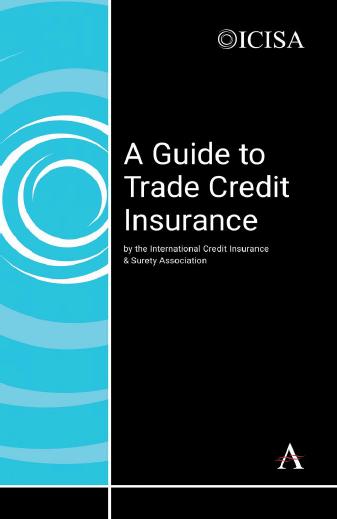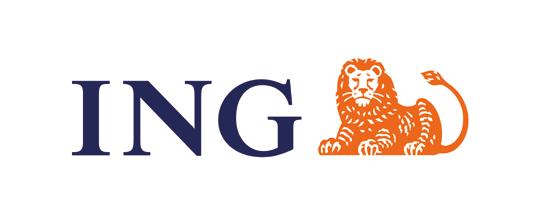
13 minute read
Update Committee Chairs
Committee of Underwriters – Nick Walklett
Despite a decline in election-related risks, policy uncertainty remains at a high level and could well rise further. The rather difficult-to-predict U.S. regulatory, fiscal and foreign policies are undoubtedly a cause for concern. The negotiations of post-Brexit arrangements do not appear to be progressing. There are a number of international on going geopolitical risks. These factors could harm confidence, deter private investment, weaken growth and lead to problems for the Credit Insurance markets in a number of countries and sectors.
Advertisement
There does appear to be some growing concerns arising from weak governance and corruption in a number of emerging markets and the credit Insurance market needs to be on the look out for specific frauds relating to misappropriation of assets or more particularly falsification of financial statements
The main topics for this autumn meeting can be analysed between the following categories: Countries; Trade Sectors; Technical topics; Specific Buyer Risks and a review of the markets.
Main topics
Countries Angola, Argentina, Brazil, Croatia, Dubai, Ecuador, Nigeria, Qatar, South Africa, Turkey, China and Russia are all countries that have been raised and have interesting issues to discuss. The on-going problems in Turkey; the slowing of the economy in China and increase in tensions with the USA particularly with regard to the USA foreign policy towards North Korea effect economic confidence. This agenda item is always open to allow the addition of any country where there are contemporary matters to discuss.
Brexit Brexit has been on the Agenda since the vote to leave the EU was cast. It is an important issue that has significance to a number of European markets and will be discussed at these autumn meetings and probably in the future.
Trade Sectors Construction, Food Retail, Oil and Gas and Steel are the sectors that have been chosen to review this autumn. All key sectors that have high exposures to credit Insurance. Nick Walklett Chair Committee of Underwriters Company: Tokio Marine HCC international Insurance Company Plc
Technical Topics The following technical topics have been raised: The monitoring of Buyer Risks to include a discussion on automatic processes , information providers, variety of filing regulations, positive and negative monitoring , reliability of information sources.
The Standard documentation for the transfer of limits when changing Insurers. The use of standard documentation and procedures could help the market where there are queries concerning the cover that is given on particular buyers.
Fraud: the increase in problems arising from environments where there is weak governance and corruption can raise particular issues for the credit insurance market. The particular areas to be considered are Africa and France.
Specific Buyer Risks An opportunity to discuss specific buyer risks is available to delegates and can be very useful where there are common goals and the information is in the public domain.
European credit Market The round table discussion of the markets represented by the attending delegates provides an ideal forum to discuss particular market trends or developments. It is always useful to share knowledge and experiences from colleagues facing similar pressures and objectives and discuss the specific concerns and challenges that exist in individual markets.
Continuation of the Update Committee Chairs
Credit Insurance Committee – Judita Svetin
The topics discussed in the Credit Insurance Committee are more and more complex and somehow pointing the future of credit insurance industry.
In the last few meetings the Committee always addressed the topic, connected to the digitalisation, big data, cyber risk and fintech. Although members understanding of mentioned topic can be different, we all share the opinion that even for quite old fashioned insurance line as credit insurance, these topics are and will be of extreme importance and that all members are paying much attention to them.
Some topics are like evergreen melodies, they keep popping up on the agenda. In the past (and probably also in the future) the evergreen topics were (are) fraud, claw-back legislation (which is extremely diversified, even in EU countries) and members approach in servicing the SME´s market.
Topic addressed on many meetings (also by inviting distinguished external speakers) is sanctions and their influence on the business. Since there are many dilemas and unanswered questions regarding sanctions, one of the future topics in the CIC will be dual - use goods. As far as I am aware, there is no case against credit (re) insurer regarding imposed and prlonged EU sanctions against Russia, so I wonder whether we as an industry really perform sanctions due diligence so excellently or actually this is just another toothless tiger? I am looking forward to further discussion on sanctions, especially with focus on everday` s challenges that members face while executing sanctions due dilligence. Judita Svetin Chair of the Credit Insurance Committee Company: SID First Credit
As a regular topic we discuss credit insurance market and conditions in members countries (usually as a tour of the table), already for some years we all share the experience of a “soft market”. It will be interesting to discuss how much softer can it get?
On one of the past meetings members agreed that the quality and relevance of topics discussed depend upon proactive approach of all members, so we made a conclusion to prepare different presentation on the market, legislation and other issues for which we share interest. A very interesting presentation of the Spanish market was given in spring meeting in Malta and we are looking forward to announced presentation of the UK market/economy, also having in mind Brexit and its consequences for credit insurance industry in UK and also in the rest of the EU countries.
One just should not miss the opportunity to attend the meetings!
Surety Committee – Roberto Castillo
Digitalization and automation will remain a topic for a long long time, not as a general discussion topic that is hip and therefore needs to be on the agenda, nor because we are dedicating our precious time to act as fortunetellers. It is much more that so many new challenges and questions are consistently arising around this comprehensive topic that we always will be confronted with new trends or developments that need to be discussed. It is like having a bamboo in your garden during a rainy summer, you never know where on your lawn you are going to find in the morning the next huge bamboo cane that has rapidly grown over night.
Same with another topic we discussed in our committee meetings in Amsterdam, it appeared like a big bamboo cane early Sunday morning in the middle of your garden gate. The garden is the heart of Europe and the bamboo cane is a large litigation bond that was in from one day to another. There is no consensus yet whether this is a product our industry is willing to develop and to offer capacity for. The access for sureties is difficult anyway as still many institutions and courts only accept deposits or bank guarantees. A prerequisite to develop litigation or judicial bonds would require intense efforts of persuasion with the corresponding institutions. This successfully happened in Brazil about six years ago when the general decision to accept surety bonds resulted in an unprecedented premium boost for the local surety industry. During our next committee meeting in Amsterdam our Brazilian members will share with us their experiences with this product until today and also give an overview about the impact of judicial bonds in the market and the challenges that came up. Roberto Castillo Chair of the Surety Committee Company: HannoverRe

Sometimes you know where a bamboo cane will appear and you can even observe it growing, but you have no clue how it will look like in the end. This can be the case when the legislator takes his time to knead and handicraft a new regulation for an existing product. We will have an knowledgeable external speaker presenting the new EU Travel Bond regulation to the committee, a vivid discussion can be expected afterwards.
These are only few examples of new topics coming up that will then keep us busy for some time. There are a lot of bamboo canes sprouting all over our surety garden and we will continue to fertilize the lawn…gardening is healthy and keeps our industry agile and dynamic.
Continuation of the Update Committee Chairs
Single Risk Committee – Olivier David
“In a constantly changing environment, topics of discussion advance at a similar pace, but complex issues need more time for contemplation.
Our successful market survey a couple of years ago needs to be refreshed, offering an updated benchmark for the structured credit and political risk private insurers. Since then, a number of new participants have joined the market and we have perceived significant movements in the frequency and severity of the losses, which should make such an update very relevant to all interested in this industry.
A parallel survey, initiated by the Lloyd’s Political Risk (PRI) Committee, is to gather similar data originated from the brokers’ records, which should be an excellent reference point to our own, presuming the requested data is not materially different.
Indeed, the content of this Lloyd’s-initiated survey should be focussed on the bank-originated business and how efficient the insurance market has been to indemnify their losses. If, as it is often believed, banks originate the large majority of the income of the structured credit and political risks market, there should be enough overlap between the two surveys to make a comparison relevant. Olivier David Chair of the Single Risk Committee Company: Atradius
The purpose of the Lloyd’s survey is to provide the data to convince the banks and their regulator of the performance reliability of the single situation non-payment insurance product. This is an aim we fully support and we will discuss the best way to provide this support on a practical basis to our fellow insurers.
We will also use the opportunity of our gathering to exchange on the prominent product trends of the moment, like aircraft financing and facultative reinsurance, which are symbolic of a new evolution in the complementary nature of the private market and the Export Credit Agencies. At a time when historical boundaries like tenor and capacity fade away, new opportunities appear for all parties involved.”

A Guide to Trade Credit Insurance
A practical and accessable industry-wide reference on Trade Credit Insurance, written by a team of industry experts.
This compact volume is a practical guide for anyone interested in Trade Credit Insurance. The International Credit Insurance & Surety Association (ICISA) presents an approachable but detailed guide written collaboratively by carefully selected industry experts. The guide describes the ‘lifeline’ of the credit insurance product, from the initial application stage to the expiration phase of the policy, including practical use aspects for credit managers. The volume offers compact information on the history of trade, the need for protection against trade credit risks, and solutions offered by credit insurance providers. The focus is on short term credit, including whole turnover policies and single risk policies.
Readership
Suitable for anyone interested in Trade Credit Insurance, from credit managers to policymakers.
Contents
Foreword; Introduction; Disclaimer; 1. What is trade?; 2. What is trade credit insurance?; 3. Product types; 4. Risk types; 5. Typical set-up of a trade credit insurance contract; 6. Premium, the price for cover; 7. Day-to-day policy management; 8. Buyer risk underwriting in trade credit insurance; 9. Debt collection; 10. Imminent loss and indemnification; 11. Renewal, expiry, termination of a policy; 12. Single risk business; 13. The single risk insurance market: Private and public players; 14. Reinsurance of Trade Credit Insurance; Trade Credit Insurance resources; Glossary of trade credit terminology

Key selling points
• Collaboration of a diverse group of experts from top organizations around the world • Written in an approachable style, accessible to the non-specialist • Includes extended glossary of key terminology • Includes a list of relevant resources for further reading
About the Author(s) / Editor(s)
The International Credit Insurance & Surety Association (ICISA) brings together the world’s leading companies providing trade credit insurance and surety bonds. ICISA promotes technical excellence, industry innovation and product integrity, as well as addressing business challenges generated by new legislation.
Where to order my copy
To order a copy of the book ‘A Guide to Trade Credit Insurance’, please visit www.amazon.com.
Blockchain: Driving innovation through co-creation
Banks are consciously investing in innovation and given the nature of blockchain or distributed ledger technology (DLT), collaboration is inevitable. In the early days of blockchain it was understood that the possibilities and impact of blockchain for many industries, but especially for financials, could and would be a game changer. It will however take time before it will really unlock the mass scale value we are looking for, Chris Sunderman, Blockchain Initiative Lead for trade finance at ING Bank explains. “At ING, we come from 2016 being a year of experimentation, where we were investigating the potential of Distributed Ledger Technology by working with other banks and industry groups, developing the capabilities to propose and provide industry wide standards. Nowadays we are leveraging and capitalizing on that knowledge to deploy real-life solutions in key areas.”
Especially in the trade finance industry banks became aware, that the chances for a successful development and adoption by its stakeholders would improve in a co-creation model. “When we look at the trade finance industry, the need for innovation is there, since it is a very traditional and paper based, complex industry. We are already bringing new technology to the trade finance world. However to stay on top of our game, and to be able to deliver the best customer experience we work with IT partners, with our customers and with fin techs. They supply infrastructure knowledge and we supply trade finance knowledge and knowledge on DLT”, Chris notes.
ING
ING is a global financial institution with a strong European base, offering banking services through its operating company ING Bank. The purpose of ING Bank is empowering people to stay a step ahead in life and in business. ING Bank’s 52,000 employees offer retail and wholesale banking services to customers in over 40 countries.

ING Group shares are listed on the exchanges of Amsterdam (INGA AS, ING. AS), Brussels and on the New York Stock Exchange (ADRs: ING US, ING.N). Sustainability forms an integral part of ING’s strategy, which is evidenced by the number one position among 395 banks ranked by Sustainalytics. ING Group shares are being included in the FTSE4Good index and in the Dow Jones Sustainability Index (Europe and World) where ING is among the leaders in the Banks industry group. According to Chris the days of sandboxing with blockchain are more or less behind us. “As far as I can see the learning and development curves have been steep, especially during the past year. Especially banks have increasingly changed the Proof of Concept approach and moved towards piloting and testing. As a result of this a number of successful experiments have been done in a couple of product areas which proved the potential of blockchain and distributed ledger technology. Easier and faster in processing, with flexibility in execution for both banks and their clients.”
Challenging for the financial industry Chris notes that consumer behaviour and technological standards are changing rapidly. “At ING we see most of these changes as an opportunity to further differentiate, which could include disrupting our own business. In the era of fast innovation and fin tech companies increasingly disrupt (segments of) the market.” He identifies models with and without success and he sometimes detects at the core of activities of traditional financials another big challenge ahead of this. “The challenge that is ahead of innovation is the different area of focus of supply (financials) and demand (market/clients). So, in general we need to validate our thoughts of innovations with stakeholders. That is one thing, but another challenge will be adoption of a certain innovation or solution by stakeholders, parties, (future) users in the ecosystem of that innovation.”
He believes that collaboration with fin techs and other industry players is key to be able to improve customer experience and make banking personal, instant and seamless. “Start innovation, take small steps at a time and work closely together, both inter-bank and intra-bank. Find spon-








